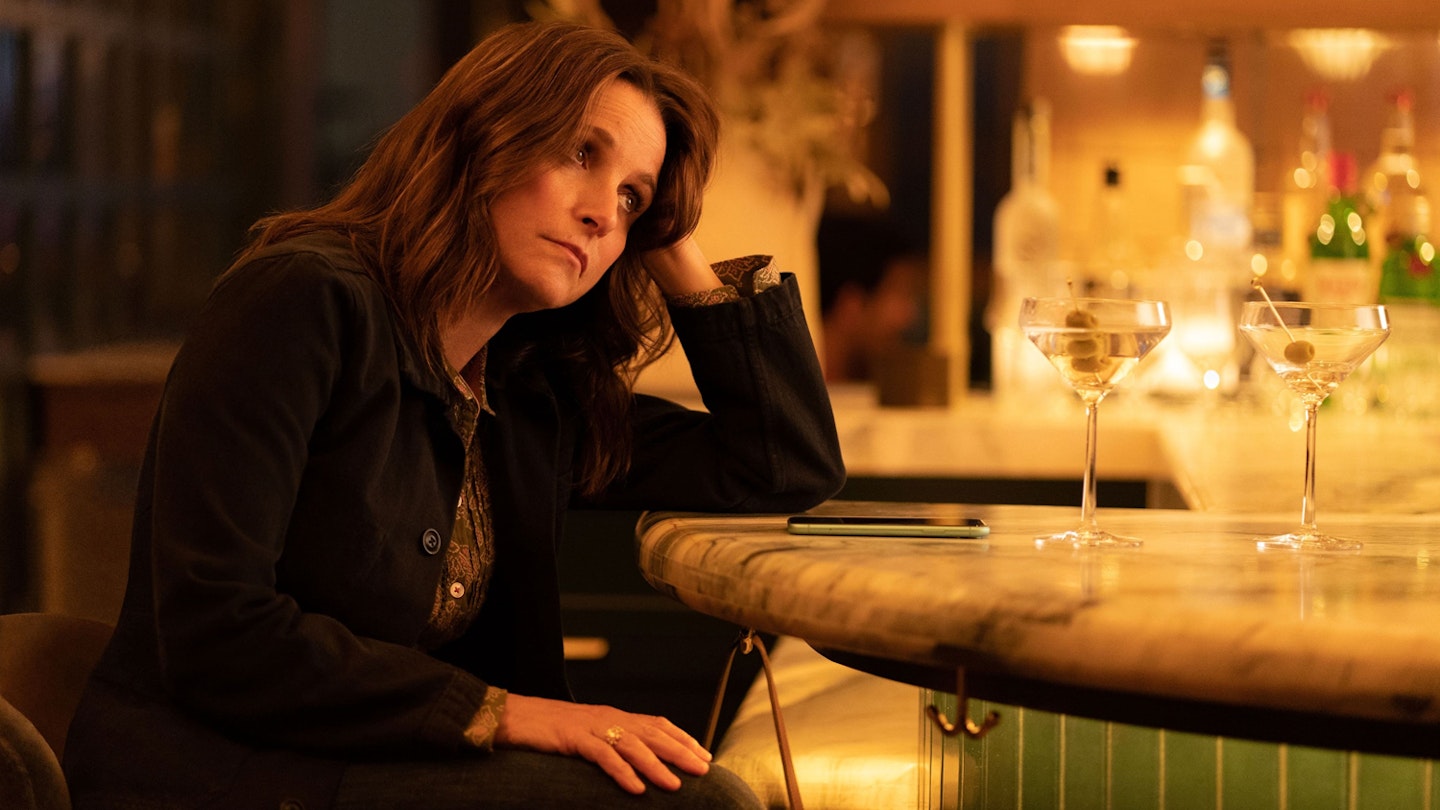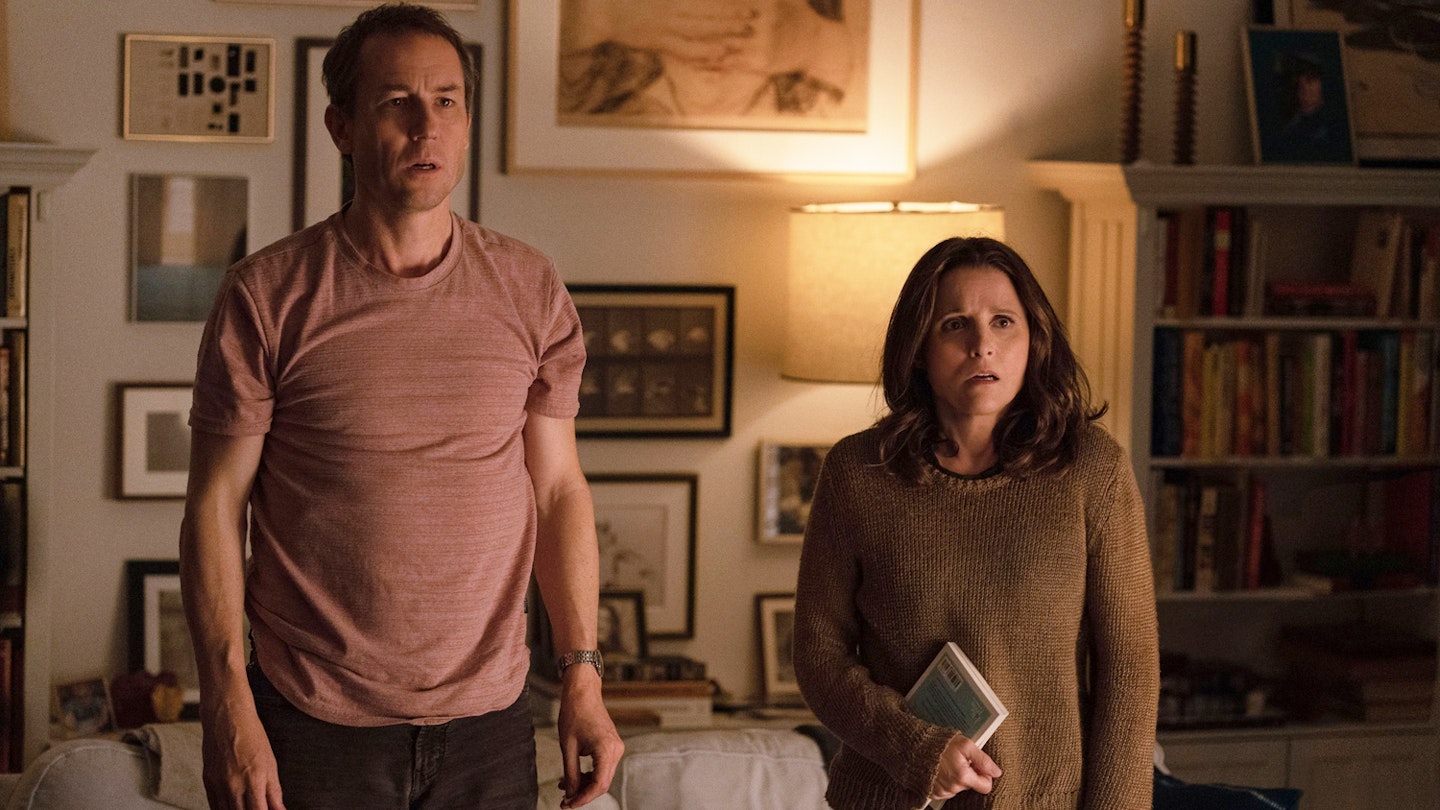Can a lie be an expression of love? In Nicole Holofcener’s sharp comedy, fragile egos implode when faced with the uncomfortable truth. Julia Louis-Dreyfus (reuniting here with her Enough Said director) plays Beth, a writer in a rock-solid marriage with therapist Don (Tobias Menzies). Even now, they’re still disgustingly in love — so co-dependent that even their 23-year-old son Elliott (Owen Teague) grimaces at the pair of them sharing a single peanut-butter ice cream. “We’re so lucky,” she blissfully tells Don, stuck in the rose-coloured bubble they have cultivated together. But on a trip to a sporting-goods shop with her sister, Beth hears her husband admit that, actually, he doesn’t think the book she’s currently writing is very good. And so her world shatters, destroying the bond of trust between them and igniting an existential crisis about her abilities as an author.

Honesty in all its brutal facets permeates You Hurt My Feelings. Crucially, Beth and Don are both in lines of work that operate in coaxing the truth out of those they try to help. We see Beth lead writing classes at The New School, praising her students for drawing inspiration from traumatic memories, while Don’s therapy sessions reveal he struggles to make any breakthroughs with his patients. Honesty is supposedly the best policy, but when confronted by others who are more direct, they construe candor as rudeness — as is the case with an overly critical client of Don’s. They don’t even begin to consider that perhaps they are the problem.
The strength of the film lies in Nicole Holofcener's screenplay.
The strength of the film lies in Holofcener’s screenplay, so witty and insightful that even when the story broaches some of its more unbelievable moments, the behavioural quirks they incite feel palpably real. Scenes often begin in the middle of a conversation — as if you’re eavesdropping on a passerby on the street — and yet the characters Holofcener has created are so fully realised that it takes no time to catch up with them.
The writer-director also taps into our everyday anxieties. Are our loved ones always sincere with us, or are they just saying what we want to hear? “The world is falling apart and this is what’s consuming you?” Don asks Beth at one point. But we can understand that such low-stakes dilemmas feel apocalyptic. The film’s title is an almost childish expression — but it reflects how such a betrayal reduces Beth to her most vulnerable. It’s a naive but ubiquitous desire: we all just want to be liked.
Holofcener has always excelled at drawing empathy from even the prickliest of characters (see: Can You Ever Forgive Me?, The Last Duel), and in You Hurt My Feelings, she does so by striking something universal. The truth really does hurt, but what makes the film so rich and alive is its examination of how people treat the wounds.
